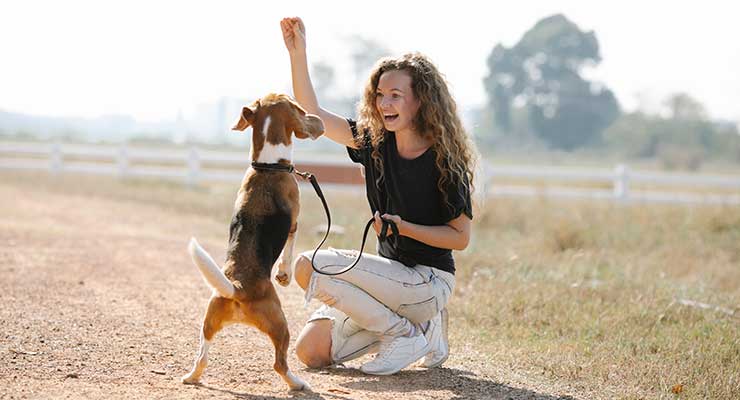Let’s talk about what to look for in a trainer: education vs experience. I find a combination of both is where you want to hit. All the multiple-choice tests and easy hands-on testing do zero to prepare you for the kind of random, quirky, and at times, severe issues that can come hand in hand with dogs, and especially rescue dogs.
You want someone who’s dealt with enough dogs that they’ve seen what your dog’s doing time and again and have tried multiple techniques to figure out what works best. You want someone who not only has studied but continues to study. There’s always room for growth, and it’s not helpful to anyone to get stuck in any one mindset. I change all the time because I learn from every situation I’m in and from everyone around me.
Do they immediately mention medication, muzzles, e-collars or anything that takes away your hope or makes you feel boxed in, in the very first session before even getting to see or know your dog? Not all trainers are created equal or are right for YOUR dog, perhaps myself included. It’s not personal; it’s about how your dog and you can achieve the best level of success.
Do they want to train your dog away from you and not show you how they accomplished the goal you needed them to hit? That’s crazy to me. How do you know how to keep that process going, to practice and learn yourself, without watching?
Things you DO want in a trainer:
- Experience
- Someone who makes you feel heard but also gives the absolute truth even if it feels uncomfortable.
- Someone who makes you feel like they understand your dog’s issues, including explaining what your part might be in it as a pet parent.
- Someone who can explain to you why things are happening from potential medical to situational to behavioral issues and show you a potential path to success.
- Someone who exercises caution but not fear when dealing with your furry companion, even when they’re coming across as an angry velociraptor.
- Someone who continues to help your companion and you improve each time you meet and when you hit a plateau of any sort, they find a way to adjust and figure it out.
Techniques that make you feel comfortable. For example, I’m a balanced trainer. I believe in both correcting poor behavior and rewarding good behavior in the right way that works for the dog I’m working with. If, at any moment, you question things when interviewing a trainer, call another, and another… until you’re sure the advice is true or you find the right fit for you and your pup’s needs.
Most important takeaway: advocate for your pup and yourself. Find the right help so you can achieve the best possible success. It’s okay to say, “No thanks, I don’t believe this is a good fit for me.”
